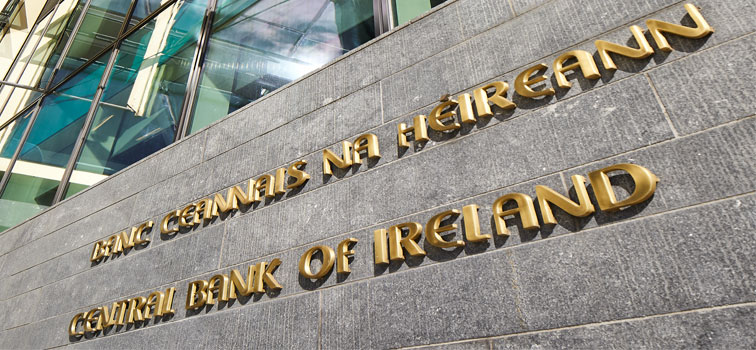Central Bank sets out regulatory and supervisory priorities for 2023
15 March 2023
Press Release

This morning (Wednesday 15 March) Central Bank Deputy Governors Derville Rowland and Sharon Donnery spoke to the Central Bank’s 2023 regulatory and supervisory priorities at an event hosted by the Institute of Banking and attended by representatives from across the regulated financial services sector. The engagement built on the priorities letter (PDF 432.22KB) which the Deputy Governors issued to all regulated firms earlier this year.
Deputy Governor, Financial Regulation Donnery said: “The macro-financial environment remains very challenging and this is central to our regulatory focus this year. Our priorities remain anchored in regulating and supervising in an effective and proportionate way. The system put in place in recent years to safeguard resilience has stood us well through recent challenges. We will remain vigilant in assessing and managing the resilience of firms and continue to ensure the effective functioning of the financial system that serves the needs of the economy and society.”
Deputy Governor, Consumer and Investor Protection Rowland said: “We have made clear our expectations to firms on the steps they must take to mitigate risk to consumers and investors in this changing and challenging economic environment. Our Consumer Protection Outlook Report (PDF 2.37MB) sets out the key risks on which financial firms should take action in this regard. Similarly, our Securities Markets Risk Outlook Report (PDF 1.04MB)emphasises the need for firms and market participants to recognise and respond to the new market conditions and adapt their risk management and compliance frameworks in order to protect investors and promote orderly markets.”
Core areas of focus will include:
- continuing to remain vigilant in assessing and managing the financial and operational resilience of firms;
- enhancing the Bank’s regulatory and supervisory approaches to mitigate risks from the changing financial system;
- providing a clear, open and transparent authorisation process through active engagement with industry and other stakeholders;
- progressing actions on the systemic risks generated by non-banks, in particular advancing a macro-prudential framework for non-banks;
- continuing to oversee the consolidation of the Irish banking sector and associated programme of account migration;
- supervising how firms are supporting borrowers to manage the challenges of the current economic environment (including issues related to affordability and arrears);
- Consulting and engaging on the review of the Consumer Protection Code, the cornerstone of the Bank’s consumer protection framework, and the Individual Accountability Framework, the objective of which is to enhance governance across the regulated sector;
- Continuing vigilance of the financial system, supervising firms’ compliance with AML/CFT obligations, detecting and sanctioning market abuse, and enforcing financial sanctions (working closely with An Garda Síochána and other relevant bodies in all these areas);
- Implementing new EU regulations on digital operational resilience (DORA) and markets in crypto assets (MiCA), as well as contributing to the development of other regulations, such as the review of the Payment Services Directive (PSD2).
- Strengthening the resilience of the financial system to climate change risks and its ability to support the transition to a climate-neutral economy, along with implementing the EU’s Sustainable Finance Disclosures Regulation.
These priorities are in keeping with the Central Bank’s vision of a resilient and trustworthy financial system, which sustainably serves the needs of the economy and its customers, in which firms and individuals adhere to a culture of fairness and high standards.